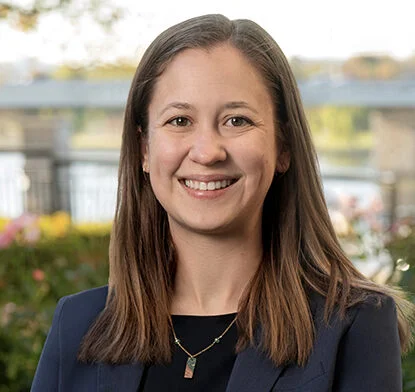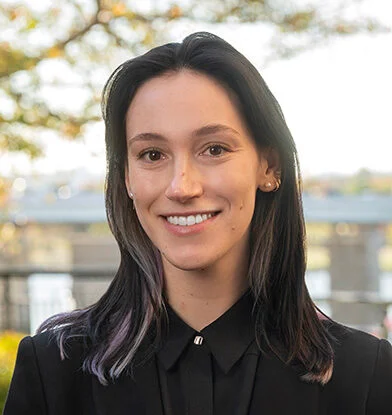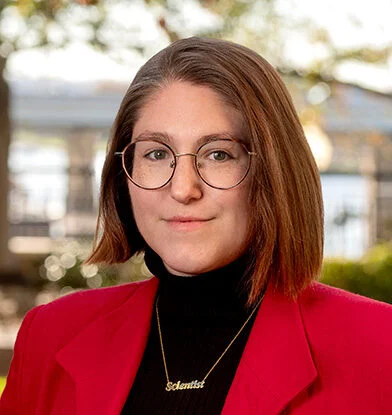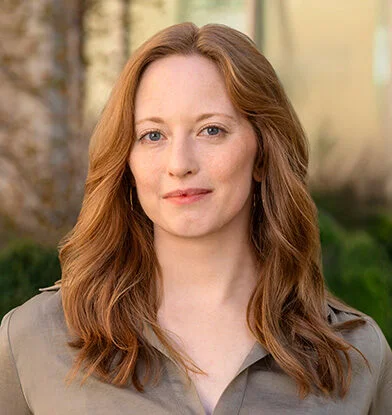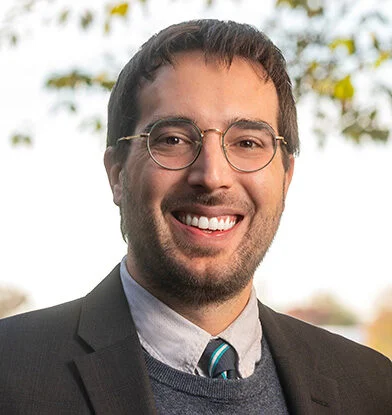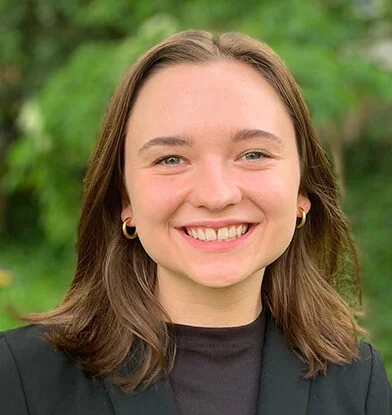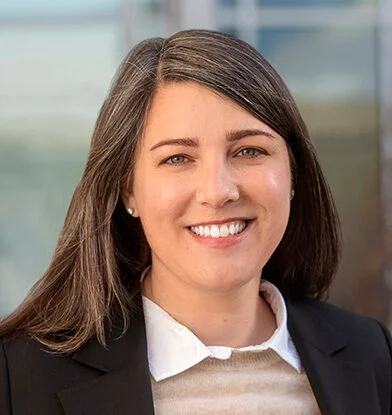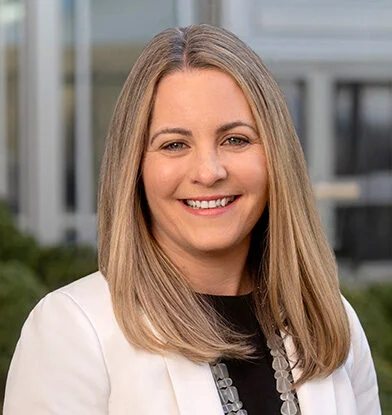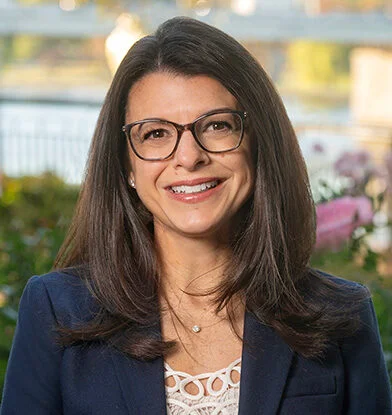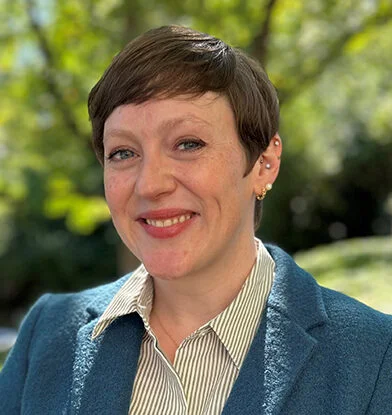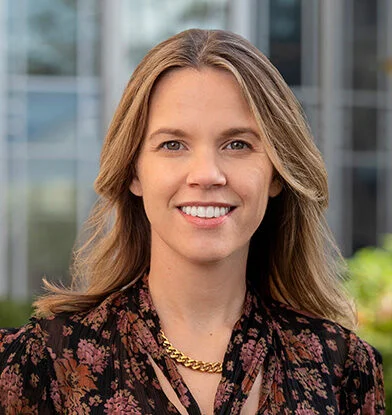Our Team

We are scientists, innovators, and philanthropy experts—with deep expertise in research ecosystems and the critical role of strong science to advance human health. As philanthropy advisors, we have a track record of leveraging funding strategies to drive long-term, meaningful change.
Cara Altimus, PhD
Managing Director
Cara Altimus leads SPARC at the Milken Institute. She is also the Managing Director of Breakthrough Discoveries for thriving with Bipolar Disorder (BD2), a philanthropic initiative launched out of SPARC. Previously, Altimus led the Neural Interfaces Laboratory at the US Food and Drug Administration (FDA). She serves as the chair for the Trainee Advisory Committee for the Society for Neuroscience and as an advisor to the Ontario Brain Institute. Altimus holds a PhD in biology from Johns Hopkins University and a bachelor’s degree in genetics from the University of Georgia.
Hermela Assefa
Associate
Hermela Assefa supports the SPARC Rare Disease and Oncology focus areas. Her background in public health research and health equity, with experience in community engagement, project coordination, and strategic planning. Previously, at Pyxis Partners, Assefa led engagement efforts for pediatric partners of the National Institutes of Health (NIH) All of Us Research Program. At Children’s National Hospital, she coordinated care and services for low-income Black women as part of a maternal mental health research initiative. She holds a bachelor’s degree in public health with a concentration in sociology from Franklin & Marshall College.
Quinton Banks, PhD
Associate Director
Quinton Banks focuses on philanthropy in immune and rare diseases, including sarcoidosis and ALS. Banks has training in biological sciences and psychology, which gives him a unique perspective on the human impact of high-net-worth giving. His extensive scientific background includes research in chronic pain, taste perception, and muscle physiology. Banks holds a PhD from the University of Maryland School of Medicine and a bachelor’s degree from Grinnell College.
Kelsey Barcomb, PhD
Senior Associate
Kelsey Barcomb is the Program Manager of Discovery Research at BD2, where she builds community and facilitates collaborative efforts in the BD2 network. Previously, Barcomb was a project manager for a multi-institutional team funded by Aligning Science Across Parkinson’s. She also completed two postdoctoral fellowships at Brown University and the University of Colorado Anschutz Medical Campus (CU-AMC), focused on neural pathways of stress and reward. Barcomb holds a PhD in pharmacology from CU-AMC.
Caitlyn Barrett, PhD
Director
Caitlyn Barrett manages SPARC’s work in the Rare Diseases and Cancer focus areas. She also serves on the Board of Directors of the Coalition Against Childhood Cancer. Previously, Barrett was the senior director of research and programs at CureSearch for Children’s Cancer. She also established the Human Cancer Models Initiative at the Office of Cancer Genomics at the National Cancer Institute and completed postdoctoral research training at the Pittsburgh Institute of Neurodegenerative Disease at the University of Pittsburgh. Barrett holds a PhD in cancer biology from Vanderbilt University.
Emily Baxi, PhD
Director
Emily Baxi is the Director of the Integrated Network within BD2. Prior to joining SPARC, Baxi was an assistant professor at Johns Hopkins University, serving as the executive director of the Packard Center for ALS Research and program director for Answer ALS. Previously, she completed postdoctoral training in neuroimmunology at Johns Hopkins University. She holds a PhD in neuroscience from George Washington University and a bachelor’s degree in pharmacology from University College Dublin, Ireland.
Elizabeth Burke, PhD
Associate Director
Elizabeth Burke focuses on philanthropic investment in rare diseases and cancers, leveraging her expertise in rare disease research, including neurodevelopmental and neurodegenerative disorders. Previously, Burke was a scientist in the NIH Undiagnosed Diseases Program, where she managed patient matching, data sharing, and biospecimen repository and coordinated research focused on extremely rare or novel disorders. She holds a PhD in molecular medicine and translational science from Wake Forest University and a bachelor’s degree in biology from Carleton College.
Veronica Beck, PhD
Associate Director
Veronica Beck is the Program Manager of the BD² Integrated Network within BD². Previously, Beck completed the Research Operations, Management, and Strategy Fellowship at the University of Michigan Medical School, complementing her biomedical research background with experience in managing projects, administering grant programs, and fostering partnerships among business, basic science, and medical science sectors. Beck holds a PhD in neuroscience from the University of Michigan with a focus on rare pediatric neurological diseases.
Ishita Das, PhD
Director
Ishita Das manages SPARC’s Science Ecosystem focus area, which builds partnerships and programs in cross-disciplinary areas of biomedical research and healthcare that accelerate scientific progress. Previously, Das was a project manager at Ripple Effect, a management consulting firm, where she implemented science and health initiatives for federal agencies, nonprofits, and public-private partnerships. Das holds a PhD in cellular and molecular biology from the University of Michigan, Ann Arbor, and a bachelor’s degree in biology from the University of North Carolina, Chapel Hill.
Taylor Evans, PhD
Senior Associate
Taylor Evans focuses on cross-disciplinary programs in SPARC’s Scientific Ecosystem focus area, leveraging her expertise in molecular genetics, rare diseases, and computational biology tools. Previously, Evans was a senior fellow at Johns Hopkins Technology Ventures, where she assessed cutting-edge therapeutic and diagnostic technologies. She also supported University-industry partnerships in RNA therapeutics. Evans holds a PhD in cellular and molecular medicine from Johns Hopkins University and a bachelor’s degree in biomedical sciences from Rochester Institute of Technology.
Cody Fisher, PhD
Senior Associate
Cody Fisher’s expertise lies within biomedical research, science/health policy, immunology/infectious disease, and coalition-building. At the Milken Institute, he researches cross-cutting subject matter across the biomedical research landscape to develop and support meaningful philanthropically funded projects across science and health disciplines.
Previously, Cody worked in the US Department of Health & Human Services (HHS) – Office of the Assistant Secretary for Planning and Evaluation (ASPE), where he supported the Federal Task Force for Combating Antibiotic-Resistant Bacteria (CARB), the US’s all-of-government approach to fight antimicrobial resistance (AMR) domestically and abroad. He also led a multi-project policy research portfolio investigating infectious disease preventatives, diagnostics, and therapeutics, as well as biomedical research priority areas. Cody received his bachelor’s degree in microbiology and biomedical sciences from the University of Wisconsin-La Crosse and his doctorate in immunology and infectious disease from the Mayo Clinic Graduate School of Biomedical Sciences in Rochester, MN.
Amy Jobe, PhD
Associate Director
Amy Jobe manages SPARC’s scientific communications, leveraging her background in molecular biology research and its applications in early-stage therapeutics development. Previously, at the science-focused agency LifeSci Communications, she led communications programs for several biotechnology companies at various stages of development in fields including cancer immunotherapy, gene therapy, and diabetes. Jobe holds a PhD in biological sciences from Columbia University, where she also completed postdoctoral training, and a bachelor’s degree in biological sciences from Cornell University.
Tom Jurkiw, PhD
Associate Director
Tom Jurkiw manages grant programs funded by SPARC’s philanthropic partners. His expertise lies in research program management, strategic planning, and fostering collaboration in the sciences. Previously, Jurkiw was a Program Officer at the National Academies of Sciences, Engineering, and Medicine; he oversaw the administration and development of fellowship programs in collaboration with federal government and private sponsors. He holds a PhD in biological chemistry from the University of Michigan and a bachelor’s degree in biochemistry and chemical biology from Wayne State University.
Ishtiaq Mawla, PhD
Associate Director
Ishtiaq Mawla applies his background in translational research, business consulting, and stakeholder management to support philanthropists, families, and foundations to SPARC’s Rare Disease and Cancer focus areas. Ishtiaq received his PhD from the University of Michigan and his undergraduate degree from Connecticut College.
Lillian Parr
Associate
Lillian Parr supports SPARC’s Brain Disorders and Mental Health focus areas. Previously, Parr was a research fellow at the Council on Strategic Risks, where she conducted research on biosecurity and pandemic-prevention policy. Her work focused on a range of issues, including zoonotic spillover prevention, regulation of dual-use life sciences research, and technology for pathogen early warning. Parr holds a bachelor’s degree in biology from the College of William & Mary. As an undergraduate, Parr was an iGEM researcher and completed a research fellowship at Caltech.
Nadia Penrod, PhD
Senior Associate
Nadia Penrod leverages her interdisciplinary scientific expertise in biomedicine and informatics toward initiatives in SPARC’s Rare Diseases focus area. Previously, as an academic scientist, she built a diverse research portfolio spanning cancer genomics, molecular pharmacology, and mind-body medicine; as a science writer, she covered topics in sustainable agriculture and food for health. Penrod holds a PhD in experimental and molecular medicine from the Geisel School of Medicine at Dartmouth College and a bachelor’s degree in biochemistry from Indiana University of Pennsylvania.
Daniel Pham, PhD
Director
Daniel Pham is the Director of Discovery Research Programs at BD2. He played a lead role in building the foundation for BD², cultivating productive collaborations, and co-authoring multiple publications on bipolar disorder. Previously, Pham worked in science advocacy and policy at the American Society for Biochemistry and Molecular Biology, as well as Research America and Future of Research. Pham holds a PhD in neuroscience from Johns Hopkins University and a bachelor’s degree in neuroscience from UCLA.
Martine Polycarpe, MPH
Senior Associate
Martine Polycarpe is the Program Coordinator for the Integrated Network program within BD2. Previously, she was a global health and international development consultant. Polycarpe was also bureau chief for business development and director of global health at ADRA International, developing strategies for health, development, and disaster relief programs. She holds a master of public health from Loma Linda University and a Bachelor’s degree in business administration from Southern Adventist University.
Sylvie Raver, PhD
Senior Director
Sylvie Raver manages SPARC’s Brain Disorders and Mental Health focus areas. She has published work on biomedical strategy with a focus on mental health, neurotechnology, and rare neurodegenerative diseases. Previously, Raver led the Society for Neuroscience’s global programming and policy efforts in neuroscience training for individual scientists and other members. Raver conducted postdoctoral research at the National Institute on Aging, received a PhD from the University of Maryland School of Medicine, and holds a bachelor’s degree from Lafayette College.
Benjamin Roberts, PhD
Senior Associate
Benjamin Roberts is a senior associate in the Science Philanthropy Accelerator for Research and Collaboration (SPARC) team at Milken Institute Strategic Philanthropy. He has a deep understanding of the research ecosystem, including scientific funding policies and processes. At the Milken Institute, Ben is focused on engaging with programs that strengthen the biomedical research enterprise.
Before joining SPARC, Ben worked in the National Institutes of Health (NIH) Office of Extramural Research (OER), where he coordinated strategic communications and outreach activities aimed at supporting federal research policy initiatives. Ben received his PhD from the University of North Carolina at Chapel Hill in biochemistry and biophysics and completed postdoctoral training at the Uniformed Services University of the Health Sciences in Bethesda, MD. He is based in the Milken Institute’s Washington, DC office.
Erin Ross
Director
Erin Ross manages SPARC’s strategy and operations across all initiatives. She applies her expertise in health systems and analyzing the role scientific evidence plays in health policy implementation to the role. Ross has published work on health policy and implementation strategies for topics such as type 1 diabetes, dementia, and tauopathies. Prior to joining SPARC, Erin worked in the life science industry for more than 17 years, building strong skills in scientific research, writing, facilitation, and communication. She holds a bachelor’s degree in biochemistry from Hood College.
Nadia Sarfraz, PhD
Senior Associate
Nadia Sarfraz supports programs in neurodegenerative diseases within SPARC’s Brain Disorders focus area. Previously, Sarfraz worked in venture creation at the biotechnology company Flagship Pioneering. She holds a PhD in biochemistry from Georgetown University, where she developed multiplexed RNA live-cell imaging systems that have been widely adopted and contributed to high-impact scientific advancements. She earned a bachelor’s degree in biochemistry from Whitworth University.
Samantha Schumm, PhD
Associate Director
Samantha Schumm applies her expertise in neuroscience to SPARC’s Mental Health focus area. Previously, Schumm was a program officer with the Board on Health Sciences Policy at the National Academies of Sciences, Engineering, and Medicine; she directed studies on race and ethnicity in biomedical and genomics research and led working groups on workforce development and manufacturing technologies in regenerative medicine. Schumm holds a PhD in bioengineering from the University of Pennsylvania and a bachelor’s degree in biomedical engineering from Yale University.
Elizabeth Stafford, MPH
Associate Director
Elizabeth Stafford brings expertise in mental health and person-centered research to the Milken Institute’s partnerships with philanthropists and foundations, developing collaborative strategies to optimize philanthropic investment in advancing mental health research priorities. Previously, Stafford served as Director of Research for the National Alliance on Mental Illness (NAMI). She received a master of public health degree in Epidemiology with a Certificate in Public Health Genetics from the University of Michigan.
Aggie Stephens, MSc
Associate Director
Aggie Stephens manages SPARC’s frontotemporal dementia work in the Brain Disorders focus area. She is also a board member for the Institute of Neuroethics. Prior to SPARC, at the Kavli Foundation, she built collaborations for large-scale neuroscience projects with the International Brain Initiative. Previously, she was the program manager for ENIGMA, an international consortium in neuroimaging and genomics. She holds a master’s degree in clinical science from the University of Colorado and a bachelor’s degree in psychology from the University of North Carolina, Chapel Hill.
Kara Whelply, MBA, MPH
Associate Director
Kara Whelply has supported a range of SPARC’s initiatives from bipolar disorder to follicular lymphoma. Previously, she was an ORISE fellow at the Center for Drug Evaluation and Research at the US FDA, where she assessed regulatory data and knowledge management systems to improve efficiency and workflow for regulatory reviewers and administrators. Whelply holds a master of business administration and a master of public health with a concentration in epidemiology from the University of Alabama at Birmingham and has a bachelor’s degree from the University of Alabama.



